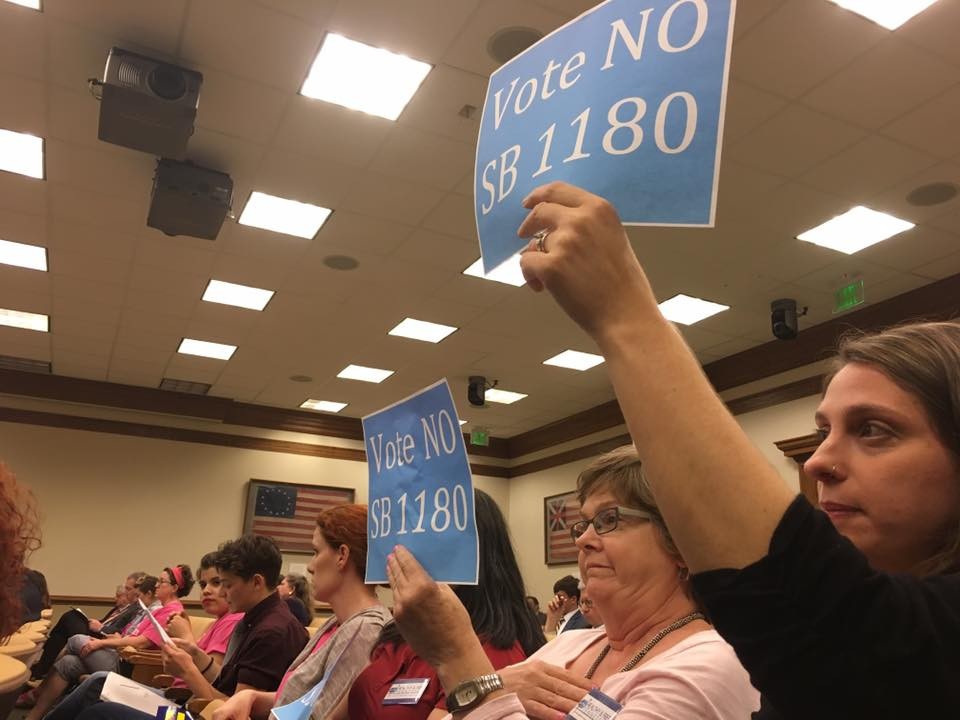 Healthy and Free Tennessee
Healthy and Free Tennessee
A bill called the “Tennessee Infant Protections Act” that will enact a 20-week abortion ban in the state of Tennessee is on it’s way to Governor Bill Haslam’s desk, though Tennessee’s own attorney general called the bill “constitutionally infirm”, and added that some provisions in the bill run contrary to the U.S. Supreme Court’s precedent.
Across the state, reactions to the bill’s passage from organizations that advocate for women’s healthcare mirror one another — dismayed, but not shocked.
Healthy and Free Tennessee (HFTN), a state-wide coalition that advocates for women’s sexual health and reproductive autonomy asserts that the bill is the latest example of legislators targeting abortion for pure political points.
“Tennessee has so many real issues that we as residents want our legislators to be working on, such as providing healthcare to the hundreds of thousands of Tennesseans who cannot access the care they need,” said HFTN Co-director Anna Carella.
Carella maintains this the bill will only create new burdens for women in an already vulnerable position.
“We expect our legislators to stand up against extreme political agendas and address real problems, not create new ones,” she added.
National data released by Planned Parenthood states that 99 percent of abortions are performed before the 20 week mark. Anecdotal contributions to HFTN add context to that data: At 20 weeks, if a woman is need of an abortion, it’s because she is in danger, or her child is.
Francine Hunt, the executive director of Tennessee Advocates for Planned Parenthood has referred to the bill as cruel, and explained that women facing a decision about terminating a wanted pregnancy are endangered most by this bill.
“Women in that situation are usually in a state of grief,” said Hunt.
Should the bill be signed into law, an added hardship will fall on the physicians providing abortion services.
Physicians who perform an abortion after 20 weeks will be at risk for misdemeanor and felony charges, should it be proven that the women needing an abortion was not at risk for her life, and her fetus could have been viable.
“These are situations where medical experts need every available resource at their disposal, not the distraction and fear of lawsuits and jail,” said Carella.
Additionally, a second physician must confirm the first physicians findings, which means that women who are in need of an abortion will have to hear that their fetus is not viable, twice.
Planned Parenthood Greater Memphis Region President and CEO Ashley Coffield has also weighed in, stating that the women’s healthcare organization is also “disappointed but not surprised”.
Also referring to the taxpayers’ vulnerability to costly lawsuits, Coffield refers to the bill as another decision by Tennessee lawmakers to “prioritize politics over women’s health”, and Tennessee taxpayers in this particular case.
“We’re calling on Governor Haslam to veto this abortion ban bill that if enacted into law will make Tennessee one of the most restrictive states in the nation for women’s reproductive rights,” said Coffield.
Govenor Haslam has indicated to the press that he will consider the advisement of the attorney general before either vetoing the bill or letting it pass without his signature.